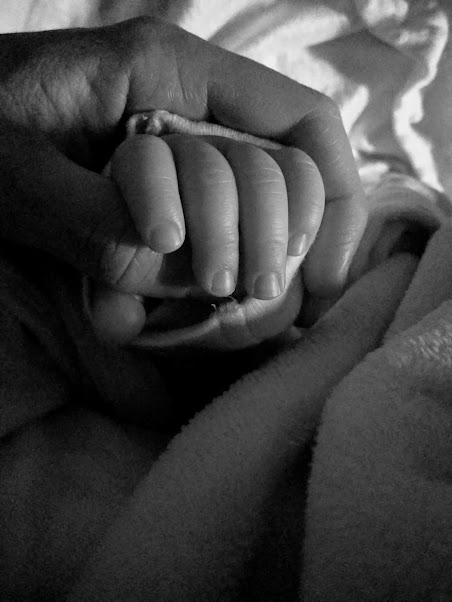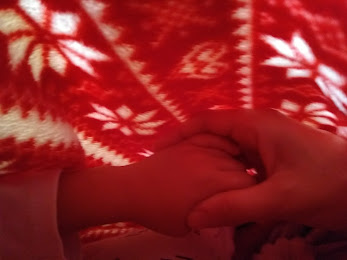Today I was thinking about love and misunderstandings. When acceptance exists, I see the love that flows like water. My relationship looks safe and eternal. But, in times of disagreement, the connection with my family appears as a heavy storm. I am afraid I could destroy my relationship in a moment.
What is it that has changed in the above opposite cases?
The way I sent and received messages to my family.
Let’s examine it with three different examples.

1). Today, in the morning, I woke up early to feed our baby, as usual. I was still sleepy, so happy! And my little girl hugged my finger with her hand as she breastfed.
Then, it occurred to me. The keyword for every tiny yet gorgeous moment is the word Connection.
2). Another fact: in our last fight with my husband, we were both devasted, but we made amends soon. Why? Because we knew the underneath reason that provoked it. Connection.
3). I am talking on the phone for a minute, and our toddler son starts acting clumsily to get my attention. What does he need?
Connection.
But what do I mean by it?
All I need is love.
And that is the start.
Love is essential to me and as important as my biological need for food.
I need and seek it, consciously or unconsciously.
- And it was such a tender depiction of love in the first example I used. The infant squeezes her mother’s finger while breastfeeding.
Of course, I could have given a similar example in the marital relationship. For instance, I felt weak for a moment, and I cried in the arms of my partner, who comforted me full of love.
2. Instead, I used the most inelegant case of a fight. A disagreement can start with blame. “I need you, but you are not by my side.”
And the partner’s response could be, “I can’t always stay close. I usually show my care. You’re telling me again that I’m not enough for you.”
If I examine this case from a distance, it will uncover the truth.
“I need you so much by my side right now. I’m afraid to be alone in this. And with you, I believe I can make it.”
And a more honest response from the partner could be:
“I’m scared too. I’m not comfortable in these situations. I’m worried about failing. But I’ll be there for you, and together, we’ll find ways.”
Of course, it is not always possible to speak tenderly and sweetly.
There are always moments of anger. And even in these cases,
I can express my irritation in a way that does not offend but motivates the person I am addressing.
However, my purpose here is not to teach a lesson about better communication between partners.
What I want to say is that fighting is not necessarily something odd. In such a case:
I see
a person who starts a conflict
and the one who continues the battle.
But if I look closer, I’ll see
A person who asks for love in an inelegant way at a moment of panic, and
Another person responds with anger or silence because he feels hurt.
So fighting is a more aggressive call for connection and acceptance.
It sounds like a paradox. One would expect it to be the opposite. I clash with you because I don’t love you.
And yet it is the complete opposite. I’m shouting because I need you more now, and I haven’t learned to express it tenderly.
It is good to remember this every time I get angry. I can create a more honest relationship and more beautiful memories.

3. The toddler needs my attention. And it is very tender but also very tiring. It depends on the moment from my experience.
And here, I didn’t use a touching example of a child saying, Mom, I love you very much. Give me a hug, mom. I need it so much!
But a less cute moment when the child makes its presence feel annoying.
However, what I will think, in any case, is that my child needs me.
He may not have the maturity to show me the easiest way. But who can blame it? Can I? I mentioned in the previous example I may be an adult, but I react with anger when I feel sad.

Conclusion
- The need for love and acceptance is crucial to me, whether I realize it or not.
- The way I express my needs affects my connection with my loved ones.
- If I change, the person around me will also change.
- My children adapt my love methods, so I must be careful.
